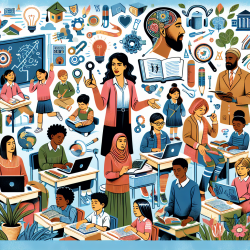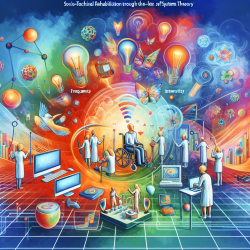Disruptive behavior in the classroom is a challenge that educators across the globe are increasingly facing. The research article "Disruptive Behavior in the Postdisciplinary Society" by Gaete-Silva and Gaete (2021) offers invaluable insights that can transform how practitioners handle such behaviors. Here, we delve into the key takeaways from this study and provide actionable steps for educators to improve their classroom management skills.
Understanding the Shift to a Postdisciplinary Society
According to Gaete-Silva and Gaete, traditional methods of discipline, such as punishment and strict enforcement of rules, are becoming less effective in today's pluralistic and democratic societies. These methods often exacerbate the problems they aim to solve. Instead, the researchers propose a shift towards a more inclusive and understanding approach, which they term the "postdisciplinary society."
Key Strategies for Educators
Here are some practical strategies derived from the research that can help educators manage disruptive behavior more effectively:
- Adopt a Tentative Stance: Instead of immediately judging a student's behavior as wrong, take a step back and consider the underlying reasons for their actions. This tentative approach can help create a more inclusive and understanding classroom environment.
- Engage in Reflective Listening: Use reflective listening techniques to validate the student's feelings and experiences. This can help de-escalate conflicts and build a stronger teacher-student relationship.
- Promote Participatory Parity: Encourage students to participate actively in the classroom and respect their diverse viewpoints. This can help reduce feelings of marginalization and promote a sense of belonging.
- Collaborative Problem-Solving: Work with students to identify the root causes of their disruptive behavior and develop mutually acceptable solutions. This collaborative approach can lead to more sustainable behavioral changes.
Why These Strategies Work
The research emphasizes that understanding and addressing the moral and social contexts of disruptive behavior is crucial. By adopting a more inclusive and participatory approach, educators can create a classroom environment where all students feel valued and respected. This, in turn, can lead to a reduction in disruptive behaviors and an improvement in overall classroom dynamics.
Further Reading
To delve deeper into the research and gain a comprehensive understanding of the postdisciplinary approach to managing disruptive behavior, we highly recommend reading the original research paper: Disruptive Behavior in the Postdisciplinary Society.










